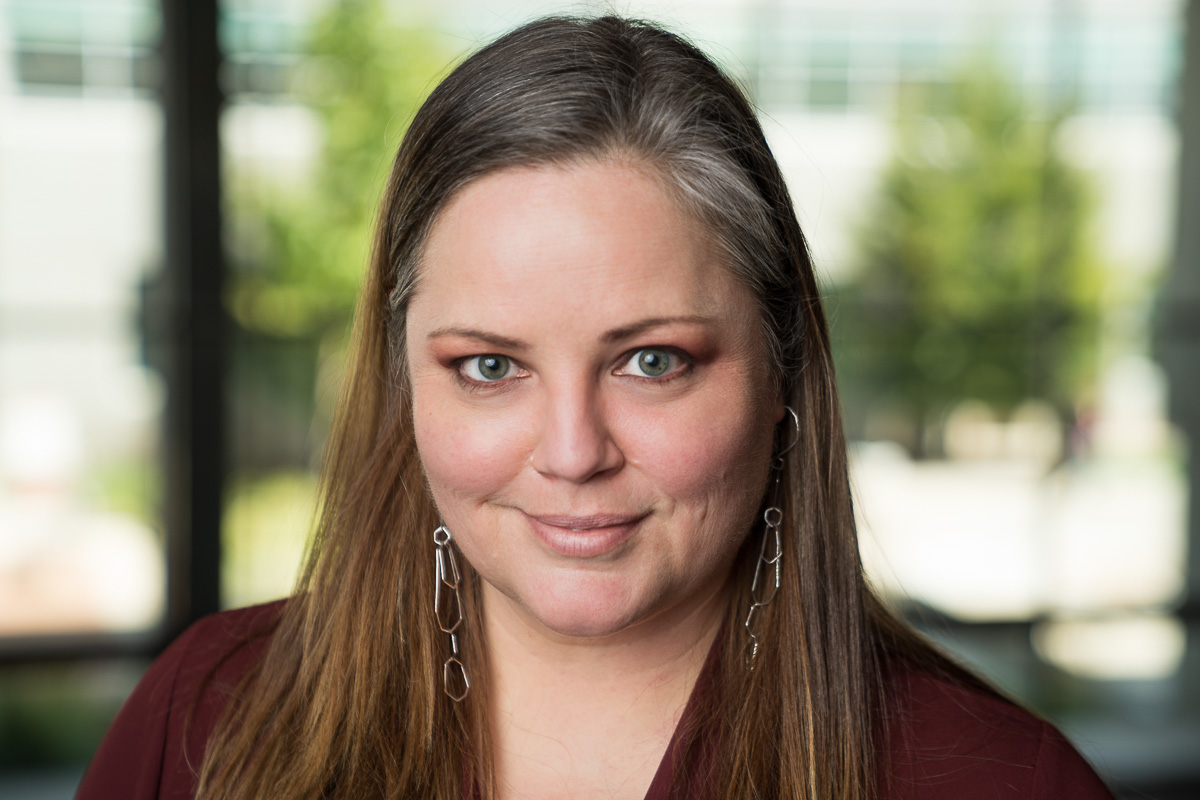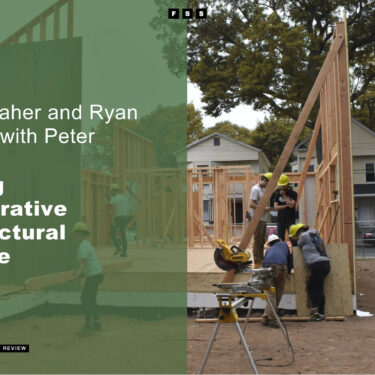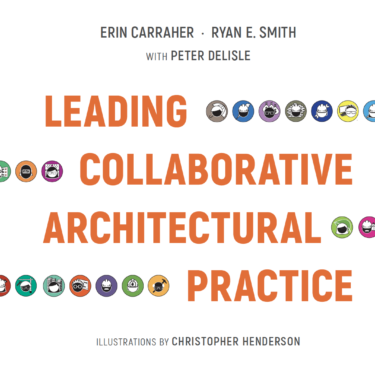Erin Carraher, AIA, NCARB, LEED AP (she/her)

Associate Professor and Director of Undergraduate Studies
email: carraher@arch.utah.edu
office: Rm 235, 375 1530 E, Salt Lake City, UT 84112
ARCH 2634 Architecture Design Fundamentals Studio
ARCH 3010 Architectural Studio I
ARCH 3050 Architectural Communication I
Erin Carraher (pronounced "CARE-ah-her") is an architect and associate professor at the University of Utah School of Architecture. A West Virginia native, Erin attended Virginia Tech where she received a B.Arch degree with honors and the AIA Henry Adams Medal and Certificate for first ranking undergraduate and Yale University M.Arch II where she was awarded the Gene Lewis Prize for Excellence in Residential Design. As an associate professor, Erin focuses on collaborative, community-engaged projects in studio and associated courses that immerse students from the earliest stages of their education in the emerging issues of architectural practice.
Her professional and academic work has received top honors at the university, state, and national levels, including the University of Utah’s 2018–19 Public Service Professorship, a position meant to further strengthen community-engaged learning experiences tied to civic engagement through partnerships with local communities. Her research on collaboration and leadership recently resulted in a national AIA Continuing Education Resource (AIA 2015), and the co-authored the book, Leading Collaborative Architectural Practice (Wiley 2017).
With an emphasis on undergraduate education in the architecture major, Erin works to empower students to make positive impact through their work and to understand their position within the larger continuum of professional practice beginning on their first day of school. To do this, she helps lead the junior undergraduate fall integrated course sequence of studio, research methods, and communications (of which she teaches studio and communications), and develops special project opportunities that engage students in meaningful collaborations with practitioners, researchers, and community partners. Her teaching approach is based on principles of integration, application, immersion, inclusion, and collaboration, which inform and are informed by her research work in similar areas.
Master of Architecture, Yale University, 2004
Bachelor of Architecture, Virginia Tech, 2002
Affordable Housing
Community-Based Design
Emerging Modes of Pedagogy and Practice
- Registered Architect, State of Utah
- Member, American Institute of Architects, Utah Chapter
- Member, National Organization of Minority Architects
- Member, Building Technology Educators’ Society
- Record Holder, National Council of Architectural Registration Boards
- LEED Accredited Professional, U.S. Green Building Council
- Member, Utah Chapter of U.S. Green Building Council
- Member, International Living Future Institute
- Member, American Association of University Women
- Board Member, University Neighborhood Partners
- Ivory Fellow, Sorenson Impact Center
- Director of Strategy & Partnerships, Equitable Housing & Livability Institute
- Past Committee Chair and Committee Member, National Council of Architectural Registration Boards
- Visiting Team Member, National Architectural Accrediting Board
- Dark Sky Scholar, University of Utah
- Past Conference Co-Chair, National Conference on the Beginning Design Student
- Past President, Past Board Member, and Past Conference Co-Chair, Building Technology Educators’ Society
- Past President, AIA Utah Young Architects Forum
- Celebrate U: A Showcase of Extraordinary Faculty Achievements - Researcher Honoree, University of Utah, April 2020 (with Luke Leither)
- Public Service Professorship, University of Utah, 2018-19
- Early Career Teaching Award, University of Utah, 2017
- Finalist for the International A+ Awards – Private House XS, Architizer, 2016 (with Jörg Rügemer)
- New Faculty Teaching Award, Association of Collegiate Schools of Architecture, 2016
- Young Architect Award, American Institute of Architects, 2016
- Celebrate U: A Showcase of Extraordinary Faculty Achievements - Creative Works Award, University of Utah, 2016 (with Jörg Rügemer)
- Emerging Faculty Award, Building Technology Educators’ Society, 2015
- Regional Excellence in Wood Design Award, WoodWorks, 2015 (with Jörg Rügemer)
- Young Architect Award, American Institute of Architects Utah Chapter, 2014
- Design Honor Award (highest level of achievement in design) American Institute of Architects Utah Chapter, 2014 (with Jörg Rügemer)
- Collaborative Practice Award, Association of Collegiate Schools of Architecture, 2014 (with Jörg Rügemer)
- Diversity Achievement Award, Association of Collegiate Schools of Architecture, 2014 (with Jörg Rügemer)
- State Juror Award (top prize), Design Arts Utah, 2014 (with Jörg Rügemer)
- Honorable Mention, Utah Public Interest Design Award, 2014 (with Jörg Rügemer)
- Professor of the Year Award, College of Architecture + Planning, University of Utah, 2013
- Certificate of Excellence, University XCaliber Award for Contributions to Technology–Enriched Teaching and Learning, Virginia Tech, 2011



